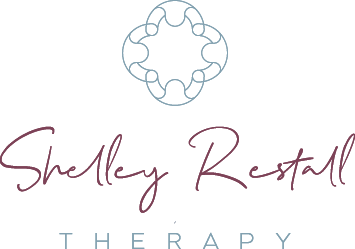Common Questions Asked about Access to Help for an Eating Disorder
Guest blog post by Paige Brooker, BSW student @ NEDIC!
Common Questions that are asked about eating disorders, and how to access treatment are outlined below with more information to support you in your journey to understanding, supporting yourself or a loved one, and with details of how to access more support.
Whether you are struggling yourself, worried about someone else, or doing research, eating disorder information can sometimes be overwhelming to explore. There can be so many different places to find information, which can take hours to sift through. Here are some common questions about eating disorders that can help you or help someone else find support.
How do I know if I have an eating disorder?
Eating disorders are complex mental illnesses characterized by persistent disturbances in eating and eating-related behaviours that result in harm to one’s physical health, mental health, and/or psychosocial functioning.
There are behavioral, physical, and psychological factors that contribute to eating disorders.
Some behavioural factors include being concerned about certain foods, focusing on calories or dieting, rigid patterns around food, increased irritability or uncontrollable outbursts of emotion, and social withdrawal.
Some physical factors include abnormal weight fluctuation, dizziness/fainting, feeling cold all the time, Stomach aches and gastrointestinal issues, and Menstrual irregularities.
Some psychological factors include Preoccupation with food, body shape and weight, Extreme body dissatisfaction, Distorted body image, Heightened anxiety around mealtimes, Depression, anxiety, or irritability, Low self-esteem, and Rigid ‘black and white’ thinking when it comes to food, such as labeling food ‘good’ or ‘bad’.
How do I get a diagnosis?
A big step into getting a diagnosis is talking to a primary care provider (family doctor) as they are qualified to provide the assessment. They can also help determine what type of support would be beneficial for you.
What types of treatments are out there?
There are many types of treatment available, and yet there needs to be so much more.
Some types of treatment include:
Hospital-based programs -- This includes outpatient, inpatient, and day programs. They are usually provincially funded and require a referral from a primary care provider.
1:1 Support -- This includes talking to a counselor or dietician. These are usually fee for service or sliding scale options.
Peer or group support -- These community-based groups are low cost and low barrier options that include speaking to others who have experienced similar things to yourself.
How can I support someone else who has an eating disorder?
There are many ways that you can be a support person for an individual who is experiencing an eating disorder.
Some ways to support are watching the language you use, when someone is confiding in you show you are listening, avoid responding to them with anger or pity, and try planning activities that don’t revolve around food.
Where can I go to find more information about eating disorders?
There are many resources that can be used to find information about eating disorders. Here is a list of resources across Canada that you can google for more information.
NEDIC -- https://nedic.ca/
Anorexia and Bulimia Québec (ANEB) - Québec
Body Brave - Ontario
BridgePoint Center for Eating Disorders - Saskatchewan
Bulimia Anorexia Nervosa Association (BANA) - Ontario
Danielle's Place - Ontario
Eating Disorder Foundation of Newfoundland and Labrador - Newfoundland and Labrador
Eating Disorders Nova Scotia - Nova Scotia
Eating Disorder Support Network of Alberta (EDSNA) - Alberta
F.E.A.S.T. - Global
Hopewell Eating Disorder Support Centre - Ontario
Jessie's Legacy - British Columbia
Kelty Mental Health Resource Centre - British Columbia
Looking Glass Foundation for Eating Disorders - British Columbia
National Initiative for Eating Disorders - Ontario
Sheena’s Place - Ontario
Silver Linings Foundation - Alberta
Waterloo-Wellington Eating Disorders Coalition (WWEDC) - Ontario
WaterStone Foundation - Ontario
Women’s Health Clinic - Manitoba

